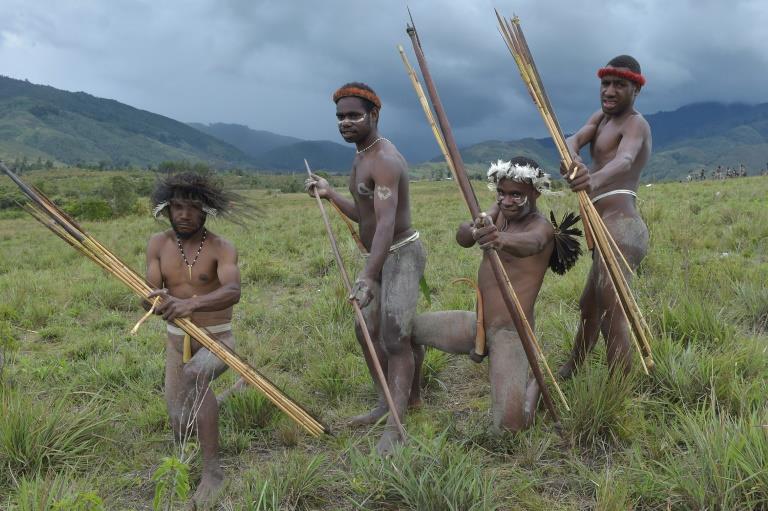
Papuan tribe preserves ancient rite of mummification
The tiny, blackened, shrunken figure he carries was Agat Mamete Mabel, the chieftain that ruled over this remote village in Indonesian Papua some 250 years ago.
Honoured upon death with a custom reserved only for important elders and local heroes among the Dani people -- he was embalmed and preserved with smoke and animal oil.
Nine generations on and his descendent Eli Mabel is the current chieftain in Wogi village -- an isolated hamlet outside Wamena that can be reached only by hiking and canoe.
He said the exact age of Agat Mamete Mabel was not known, but told AFP this ancestor was the last of the village to receive such a funeral. Once common among his forebears, the ritual method of smoke embalming was no longer practised, he explained.
Christian missionaries and Muslim preachers encouraged the tribespeople to bury the corpses, and the tradition has faded as the centuries drifted by.
But Mabel is determined to retain the ancient rites and rituals for future generations.
"We must protect our culture, including the ceremonies for the mummy, the way we treat it, and maintain and fire for it," the Dani tribesman told AFP.
The mummy, decorated with pig tusks slung around the torso, a feathered headpiece, and traditional penis gourd rests in a hut known as a "honai".
This wide domed, thatch-roofed hut is tended year round by a select few villagers who keep a fire burning to ensure the corpse remains dry and preserved.
The duty of caring for the mummy often falls to Mabel, he said. He spends many nights sleeping alone in the honai, ensuring no harm befalls his ancestor.
Eventually, the duty of caring for the mummy will be passed to others, he said. Mabel hopes his own children will bear some responsibility for keeping their customs alive, but worries they are far away.
"I have told them they must take care of the mummy at some point in their lives," Mabel said of his four children, some living in far-off provinces in Indonesia's more populated centres.
The ancient Dani tribes in Indonesia's half of the island of New Guinea were cut off from the outside world until well into the 20th century. Their homeland in the Baliem Valley was isolated by steep, rugged valleys and dense highland forest.
Today, the region remains one of the poorest in Indonesia. Many tribes rely on tourism, their unique customs, traditional dress and rituals attracting visitors to their remote villages.

Legal Disclaimer:
MENAFN provides the
information “as is” without warranty of any kind. We do not accept
any responsibility or liability for the accuracy, content, images,
videos, licenses, completeness, legality, or reliability of the information
contained in this article. If you have any complaints or copyright
issues related to this article, kindly contact the provider above.

















Comments
No comment